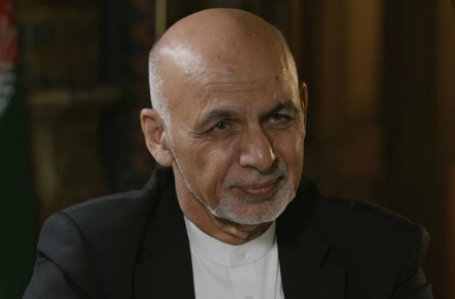
Born: 1949
Province: Logar
Ethnicity: Pashtun
Ghani completed his primary and secondary education in Habibia High School in Kabul.
He travelled to Lebanon to attend the American University in Beirut and returned to Afghanistan in 1974 to teach Afghan Studies and Anthropology at Kabul University before winning a government scholarship to pursue a master’s degree in Anthropology at New York’s Columbia University.
He received his PhD from Columbia University with a doctoral thesis (Production and Domination: Afghanistan, 1747-1901) and was immediately invited to teach at the University of California, Berkeley (1983) and then at Johns Hopkins University (1983-1991).
In 1991, Ghani joined the World Bank (WB) as lead anthropologist, advising on the human dimension to economic programs.
Following the ouster of the Taliban from power in late 2001, he was asked to serve as special advisor to Ambassador Lakhdar Brahimi, the UN secretary general’s special envoy to Afghanistan.
In that capacity, he worked on the design, negotiation and implementation of the Bonn Agreement, which set out the roadmap for transition to a new government.
During the interim administration, he served on a pro bono basis as chief advisor to then interim President Karzai. He worked on preparation of the Loya Jirgas (grand assemblies) that elected President Karzai and approved the Constitution.
As finance minister during the transitional administration, he issued a new currency in record time; computerized operations of treasury, introduced the budget as the central instrument of policy, centralized revenue and instituted regular reporting to the cabinet, the people of Afghanistan, and international stakeholders as a tool of transparency.
He won the Sayed Jamaluddin Afghan Medal, the highest civilian award in the country. He was recognized as the Best Finance Minister of Asia in 2003 by Emerging Markets.
From March 31 to April 2004, he presented a seven-year program of public investment, securing Afghanistan’s future at an international conference in Berlin, attended by 65 finance and foreign ministers.
Ghani previously ran for president in 2009 and secured three percent of all votes in fourth position after Hamid Karzai, Dr. Abdullah Abdullah and Ramazan Bashardost.
During the second term of the former president, Hamid Karzai, Ghani took responsibility for the transition program from foreign forces to Afghan forces.
For the second time he ran for president in 2014, Ghani chose Gen. Abdul Rashid Dostum as his first vice president and Sarwar Danish as his second vice president. Following outrage over the election results in close competition with Abdullah Abdullah, a second round of elections created the National Unity Government.
Under the National Unity Government agreement, Ghani became President and Abdullah Chief Executive.
Currently, former NDS chief Amrullah Saleh is his running mate for first vice president, and incumbent Vice President Mohammad Sarwar Danish is his running mate as second vice president.



